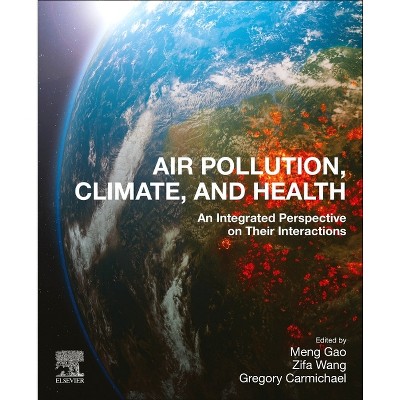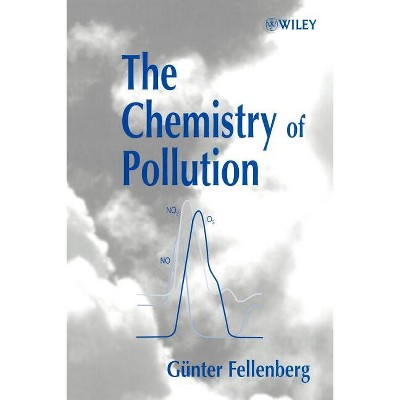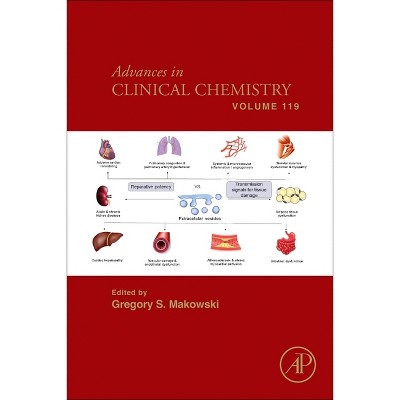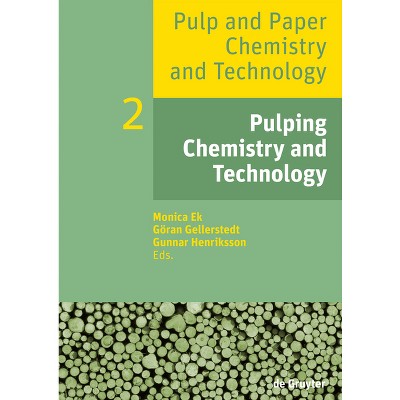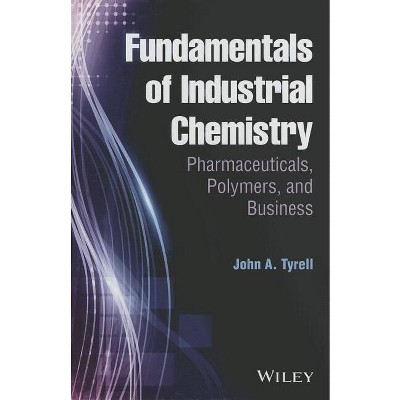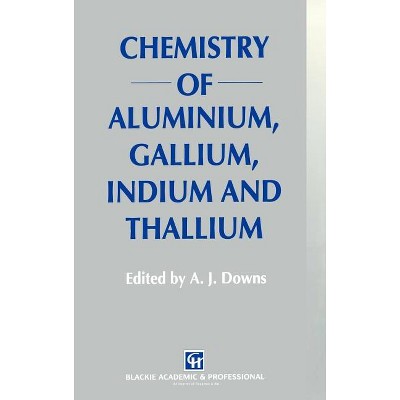Chemistry and Toxicology of Pollution - 2nd Edition by Des W Connell & Gregory J Miller (Hardcover)

About this item
Highlights
- Describes the transport of pollutants through the environment and their impact on natural and human systems, fully updated to cover key topics in modern pollution science Chemistry and Toxicology of Pollution examines the interactions and adverse effects of pollution on both natural ecosystems and human health, addressing chemical, toxicological, and ecological factors at both the regional and global scale.
- About the Author: Des W. Connell, Emeritus Professor, Griffith University, Australia and formerly Dean of the University's School of Australian Environmental Studies and Head of its School of Public Health.
- 560 Pages
- Science, Chemistry
Description
About the Book
"The Second Edition of Chemistry and Toxicology of Pollution is an update and major expansion, now covering the effects of chemical pollution on human health. The human health impacts of pollutants can be considered together with the ecosystem impacts, since the study of both have similar approaches. In addition, much can be gained by understanding the similarities and differences of the impact of pollutants on the natural environment and humans. This edition contains a comprehensive update of the content of the Chemistry and Ecotoxicology of Pollution, with the addition of integrated material on human toxicology, and new chapters covering topics relevant to current pollution issues such as global warming and climate change effects. Theory and practice within chapters are strongly supported by scientific literature that reflects the global and regional nature of pollution and ecological effects, with an emphasis on North America, UK, Europe, China, India and Australia. This major updated approach also covers recent advances in environmental science, monitoring and assessment of new and emerging pollutants, risk assessment, remediation and sustainable management of pollution effects on ecosystems and human health"--Book Synopsis
Describes the transport of pollutants through the environment and their impact on natural and human systems, fully updated to cover key topics in modern pollution scienceChemistry and Toxicology of Pollution examines the interactions and adverse effects of pollution on both natural ecosystems and human health, addressing chemical, toxicological, and ecological factors at both the regional and global scale. The book is written using a conceptual framework that follows the interaction of a pollutant with the environment from distribution in the various abiotic sectors of the environment to exposure and effects on individuals and ecosystems. The authors also highlight the critical role of various socio-economic, political, and cultural aspects in achieving sustainable goals, strategies, and science-based solutions to pollution and health. This comprehensive volume covers the chemical behavior and governing principles of pollutants, their interactions with humans and ecosystems, and the methods and processes of environmental risk assessment and pollution management.
Extensively revised and expanded, the second edition equips readers with the knowledge required to help lead the way towards a healthy and sustainable future. New chapters address current pollution issues such as global warming and climate change, recent advances in environmental science, the monitoring and evaluation of new and emerging pollutants, risk assessment and remediation, and innovative pollution management approaches and techniques. With in-depth material on human toxicology integrated throughout the text, Chemistry and Toxicology of Pollution:
- Provides an effective framework for interpreting the information produced by international, national, and local agencies
- Presents unifying theories and principles supported by up-to-date scientific literature
- Offers broad coverage of pollution science with an emphasis on North America, the UK, Europe, China, India, and Australia
- Discusses the similarities and differences of the impact of pollutants on the natural environment and humans
Chemistry and Toxicology of Pollution, Second Edition enables readers to view pollution in its correct perspective and develop appropriate control measures. It is essential reading for scientists, academic researchers, policymakers, professionals working in industry, and advanced students in need of a clear understanding of the nature and effects of environmental pollution.
From the Back Cover
Describes the transport of pollutants through the environment and their impact on natural and human systems, fully updated to cover key topics in modern pollution science
Chemistry and Toxicology of Pollution examines the interactions and adverse effects of pollution on both natural ecosystems and human health, addressing chemical, toxicological, and ecological factors at both the regional and global scale. The book is written using a conceptual framework that follows the interaction of a pollutant with the environment from distribution in the various abiotic sectors of the environment to exposure and effects on individuals and ecosystems. The authors also highlight the critical role of various socio-economic, political, and cultural aspects in achieving sustainable goals, strategies, and science-based solutions to pollution and health. This comprehensive volume covers the chemical behavior and governing principles of pollutants, their interactions with humans and ecosystems, and the methods and processes of environmental risk assessment and pollution management.
Extensively revised and expanded, the second edition equips readers with the knowledge required to help lead the way towards a healthy and sustainable future. New chapters address current pollution issues such as global warming and climate change, recent advances in environmental science, the monitoring and evaluation of new and emerging pollutants, risk assessment and remediation, and innovative pollution management approaches and techniques. With in-depth material on human toxicology integrated throughout the text, Chemistry and Toxicology of Pollution:
- Provides an effective framework for interpreting the information produced by international, national, and local agencies
- Presents unifying theories and principles supported by up-to-date scientific literature
- Offers broad coverage of pollution science with an emphasis on North America, the UK, Europe, China, India, and Australia
- Discusses the similarities and differences of the impact of pollutants on the natural environment and humans
Chemistry and Toxicology of Pollution, Second Edition enables readers to view pollution in its correct perspective and develop appropriate control measures. It is essential reading for advanced students, scientists, academic researchers, policymakers, environmental consultants or advisers, and professionals working in industry, government and nongovernmental agencies in need of a clear understanding of the nature and effects of environmental pollution.
About the Author
Des W. Connell, Emeritus Professor, Griffith University, Australia and formerly Dean of the University's School of Australian Environmental Studies and Head of its School of Public Health. His record includes being a member of a range of government committees as well as Inaugural Chairperson of the Environment Division of the Royal Australian Chemical Institute. For his work on Environmental Chemistry and Ecotoxicology he was made a Member of the Order of Australia, awarded a Doctor of Science from Griffith University, and received the Royal Australian Chemical Institute Environment Medal.
Greg J. Miller, Adjunct Associate Professor, Centre for Environment and Population Health, Griffith University, Australia. Professional experience includes environmental consulting and analytical services; academic teaching and research in environmental chemistry at Griffith University, and as a State Analyst (toxicology and forensic), Queensland Health. He has also acted in various technical and advisory roles in various Local, State and Federal Government and community-related environmental issues and assessments.






